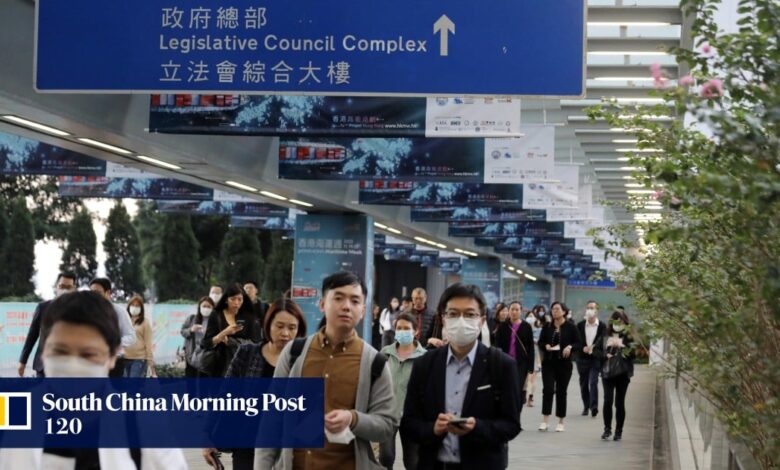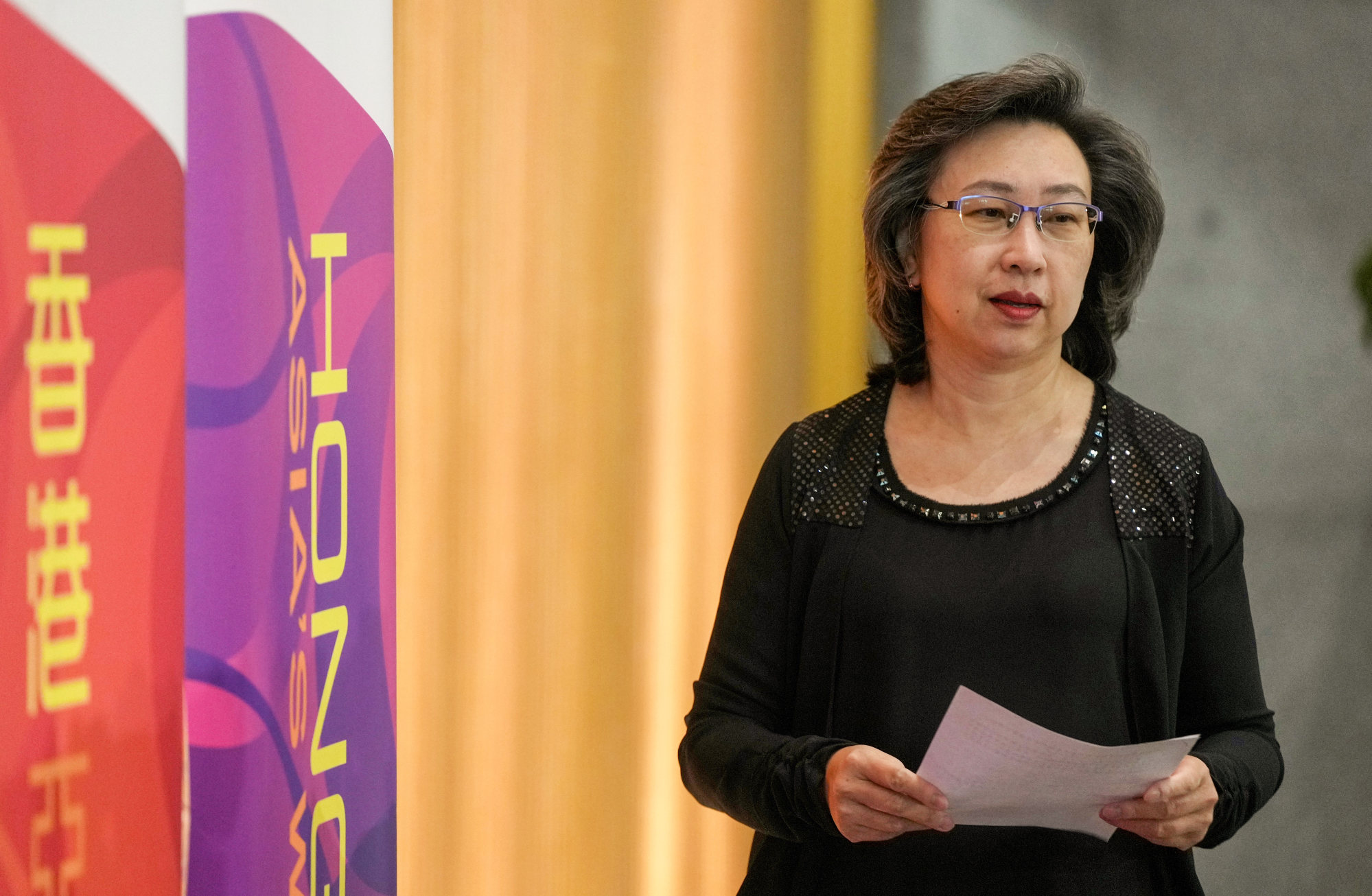Hong Kong civil service chief urges more government departments to recruit staff all-year round to help tackle brain drain

[ad_1]
Hong Kong’s civil service chief has called on more government departments to recruit staff all-year round while simplifying hiring procedures to tackle a long-standing brain drain, with more than 10,000 employees leaving last year.
Secretary for the Civil Service Ingrid Yeung Ho Poi-yan on Monday also told lawmakers that the resignation rate among government workers had shown signs of easing.
A government document showed around 10,100 civil servants left their jobs in 2022-23, with about 5,800 retiring and nearly 4,000 resigning, representing a resignation rate of 2.2 per cent.

The document also showed that as of March 31 this year, about 174,000 public servants worked for the government, which had around 192,000 positions, so 18,000 remained unfilled.
“The resignation rate has shown signs of slowing down, and it did not pose a significant impact on government work,” Yeung said at a meeting of the Legislative Council’s public service panel, while stressing that resignations were not concentrated in specific departments.
Hong Kong civil service underperformers to be sacked in streamlined system
Hong Kong civil service underperformers to be sacked in streamlined system
In 2021-22, around 10,500 civil servants left their posts. Among them, 6,100 retired and 3,734 quit, representing a 2.1 per cent resignation rate.
“We would like to encourage more government departments, especially those with long-term manpower needs, to conduct year-round recruitment for hiring talent,” Yeung said.
Currently, only 13 government jobs are open for year-round recruitment, including the police force, dentists under the Department of Health, clerical and secretarial officers, and veterinary technologists at the Agriculture, Fisheries and Conservation Department.
Yeung proposed that departments hire retired officers who had left the government for one or two years on a short-term basis to help with the year-round recruitment.
3,000 Hong Kong civil servants disciplined for misconduct in past 5 years: minister
3,000 Hong Kong civil servants disciplined for misconduct in past 5 years: minister
She added her bureau had required different departments to shorten hiring procedures as a way to help ease the brain drain problem. She said the time required to hire clerical officers had been cut to three to four months from the previous 10 months.
Lawmaker Dennis Leung Tsz-wing asked if the Civil Service Bureau had set a goal for filling vacancies, which were still remarkable despite the resignation rate slowing.
“The signs of a slowdown was the conclusion as you just compared last year and the year before. But if you compare last year with the rate for 2008-09, which stood at nearly 0.5 per cent, one can see an over four-times increase,” he said.
Yeung acknowledged the increase but stopped short of giving a time frame to fill all the vacancies.
She highlighted that about 40 per cent of those who resigned last year did so during the probation period, which typically lasted for three years.
Yeung attributed the reason to young employees’ aspiration to get various types of work experience, while emphasising the government would adopt different ways to retain talent, including conducting different training and exchange programmes.
Hong Kong ex-civil servant loses legal challenge over failure to sign oath on time
Hong Kong ex-civil servant loses legal challenge over failure to sign oath on time
Panel chairman Kwok Wai-keung expressed concern over the government’s ability to attract young talent, as the number of public servants aged 29 or under had shown a declining trend in the past four years, accounting for only about 12.8 per cent of the civil service workforce in 2022-23.
Yeung, conceding that the decrease has occurred, said the trend was observed not only in the public sector but also in private organisations.
She said the younger generation nowadays tended to pursue higher education to a greater extent.
“It is common for young people to pursue master’s or doctoral degree programmes after completing their bachelor’s degrees,” she said, noting that this phenomenon had become more prevalent than before and it had affected the number of public servants aged 29 or below.
Labour-sector lawmaker Chau Siu-chung said frontline public servants had reported to unions that their workload and work pressure had significantly increased, to the point of having to do overtime without compensation.
Yeung said public servants “do bear a certain level of responsibility” and that she believed they would not mind temporarily working overtime during emergency situations.
However, she admitted that it was “not ideal” to see the number of unfilled posts and emphasised that the government had been actively recruiting and urging departments to expedite the recruitment process.
[ad_2]
Source link





